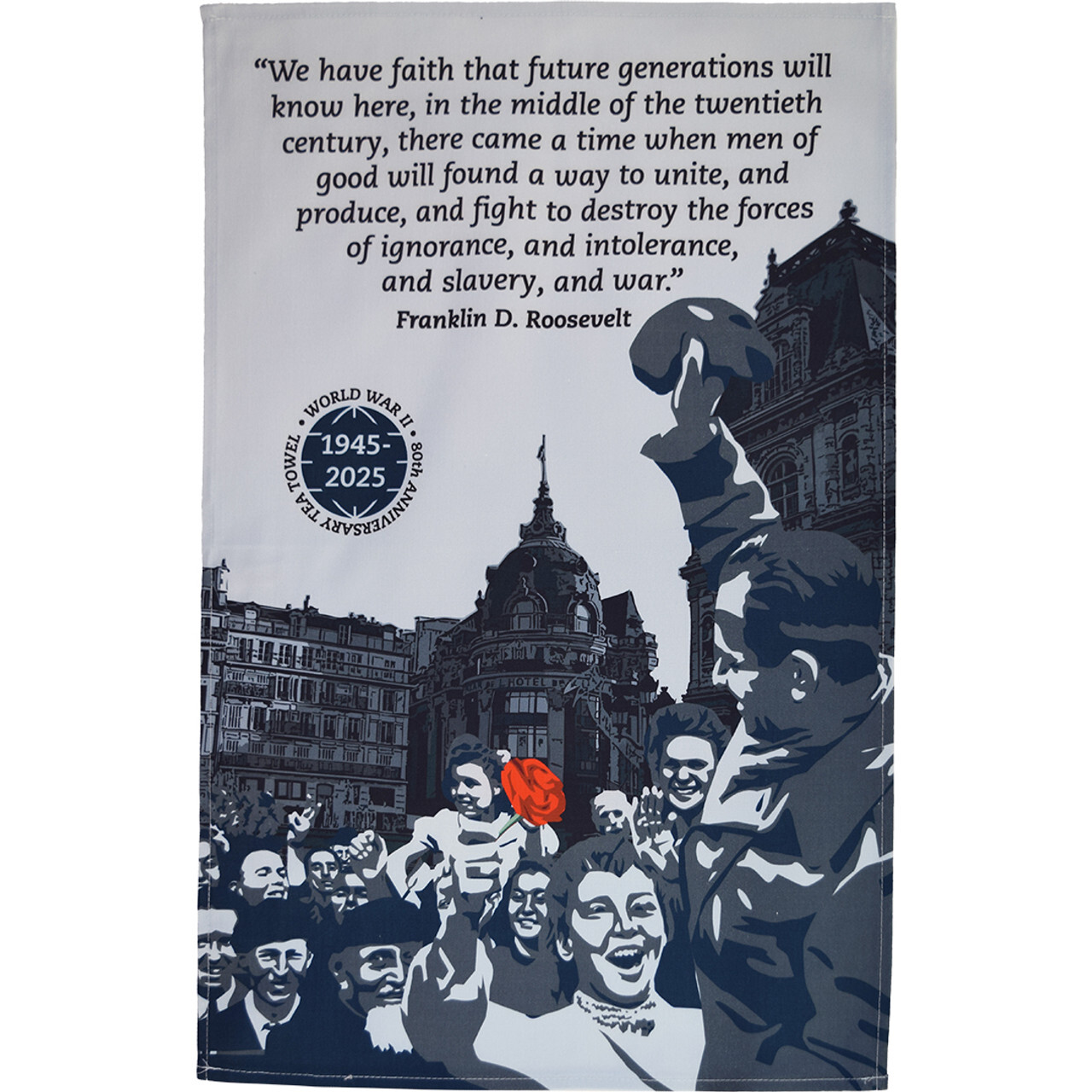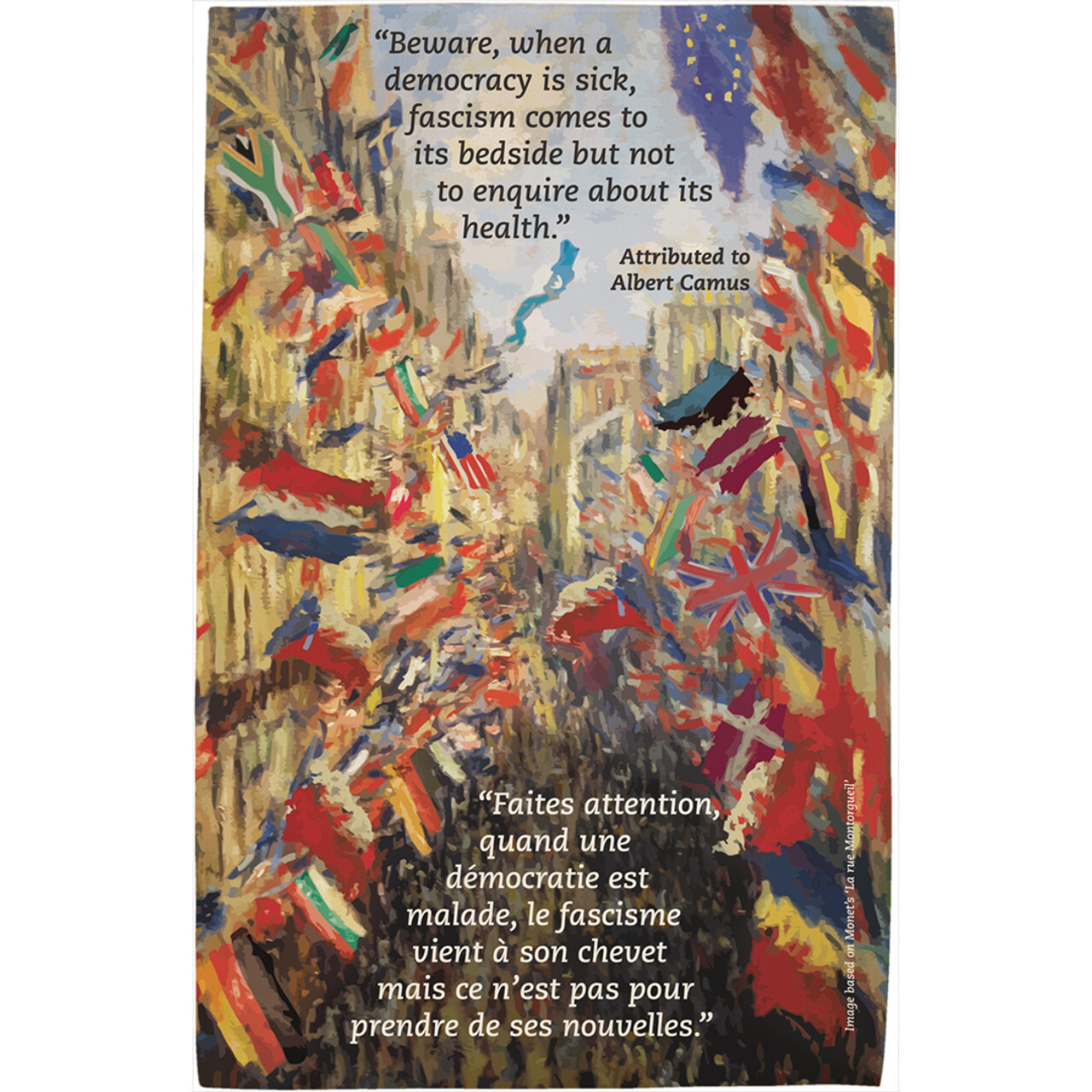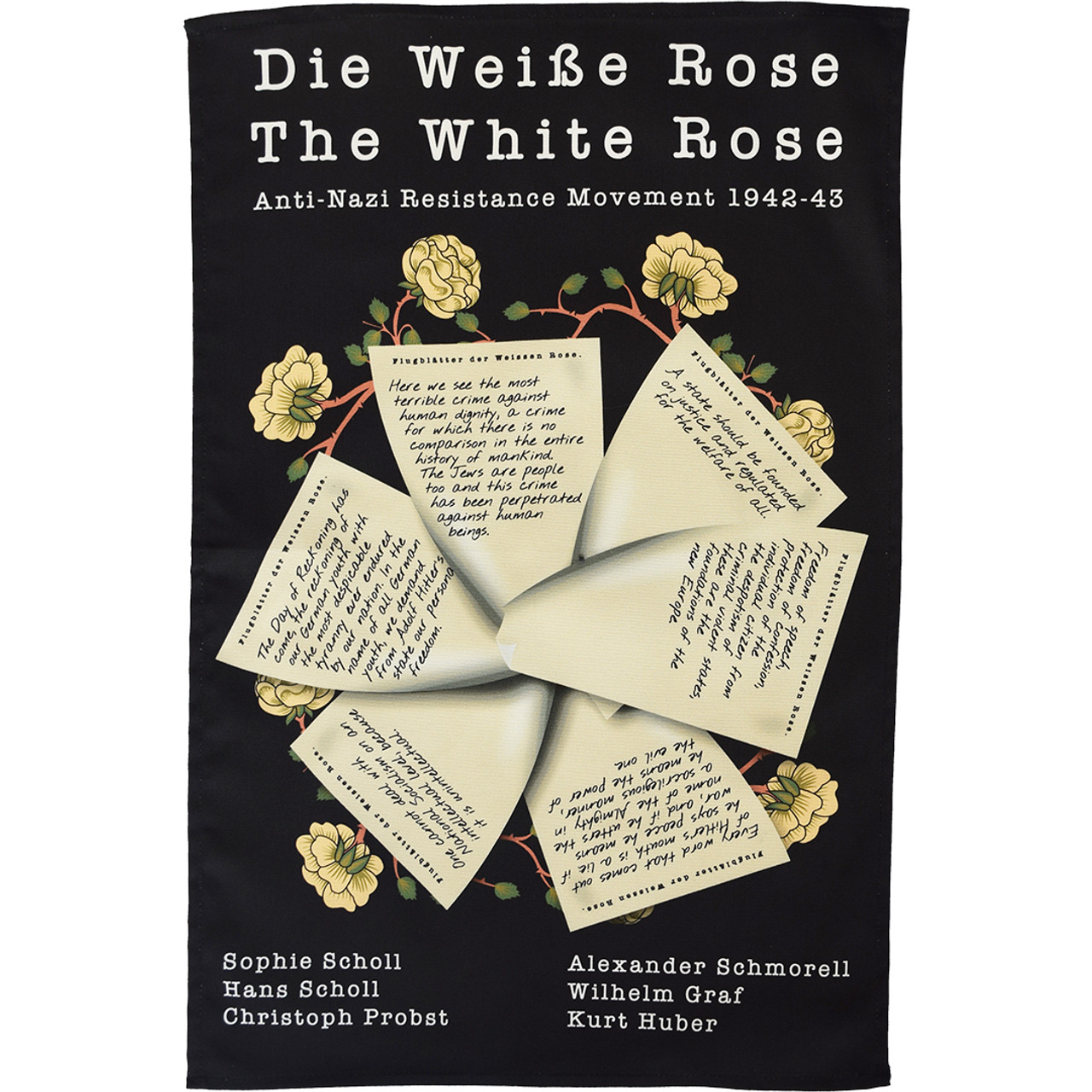We use cookies to make your shopping experience better. By using our website, you're agreeing to the collection of data as described in our Privacy Policy.
The Second World War was won. The fight continued.
80 years ago, the Allies had won. But imperialism abroad, and fascist elements in Europe, remained.
"Hitler told the world around he would tear our union down
But our union’s gonna break them slaver’s chains
Our union’s gonna break them slaver’s chains"
- Woodie Guthrie, 'Tear the Fascists Down'
On this day in 1945, the Allies won the Second World War in Europe.
After twelve years of fascist dictatorship and six years of genocidal war, Nazi Germany was defeated.
Adolf Hitler had killed himself on 30 April, when Berlin was falling to the Soviets, so it was left to a rump government to formally surrender to the Allied powers on 8 May 1945.
Celebrating 80 years since the end of WW2, we've launched several new tea towels commemorating the fight against fascism
See the New World War 2 Collection
Since 1942-3, the Nazi empire had been rolled back.
In 1944, as the Soviet Union advanced in the east, the D-Day landings smashed the German occupation of western Europe, too.
Anti-fascist resistance inside Nazi-ruled Europe had been constant since 1933, and it began to intensify as the Allies advanced.
By May 1945, the Allied armies occupied most of Germany. Scattered German garrisons elsewhere in Europe were isolated and impotent.
Hitler’s empire was finished.
The victory inspired huge, spontaneous celebrations worldwide, from London to New York, Moscow to Algeria.
But in many ways, the war wasn’t over.
The War was a fight against the fascism that had established itself in Europe in the first half of the 20th century
See the Warning Against Fascism tea towel
Some of these were obvious.
The ‘United Nations’ were fighting a global war against Nazi Germany and its allies, including Japan, which hadn’t surrendered.
Even the warfare in Europe wasn’t actually over.
The last battle was on 25 May in Odzak, in what’s now Bosnia and Herzegovina.
It was fought between Yugoslav partisans and the fascist Croatian government, a Nazi client-state now without a sponsor.
Partisans and resistance members across Europe had understood the war as a struggle to destroy fascism, not just the Germany military.
And many of these were left disappointed in May 1945.
The White Rose was one example of resistance to the Nazis inside Germany itself
In Greece, Britain had already intervened to overthrow the popular left-wing government that emerged from the anti-fascist resistance, propping up Nazi collaborators instead.
For the Allied governments, realpolitik was beginning to override the moral imperative of destroying fascism in Europe.
In Spain, this meant that courageous Republicans were ignored in 1945 when they called for an Allied intervention to overthrow Hitler’s ally, Francisco Franco, and complete the liberation of Europe.
Outside Europe, too, there was anger at the contradictions of the Allied victory.
Thousands of Muslim Algerians had fought in the French Army to liberate Europe.
But when Algerian civilians used the victory celebrations to demand decolonisation, they were massacred by French colonial police and white militias.
Multiple and diverse countries made up the Allies: from Algeria to India, Australia to Belgium
See the WW2 Allies Victory Mug
Across Europe and the world in 1945, Allied governments were violating commitments to anti-fascism and national self-determination made in the course of the Second World War.
Victory in Europe Day marks a hard-earned triumph over the most horrific state ever known.
But the causes that made the war against Nazi Germany so essential remained.
Racism, fascism and imperialism didn’t go away after 1945.
VE Day is a reminder that the peoples of the world need to continue to struggle against these evils – and of what we can achieve together when we do.







